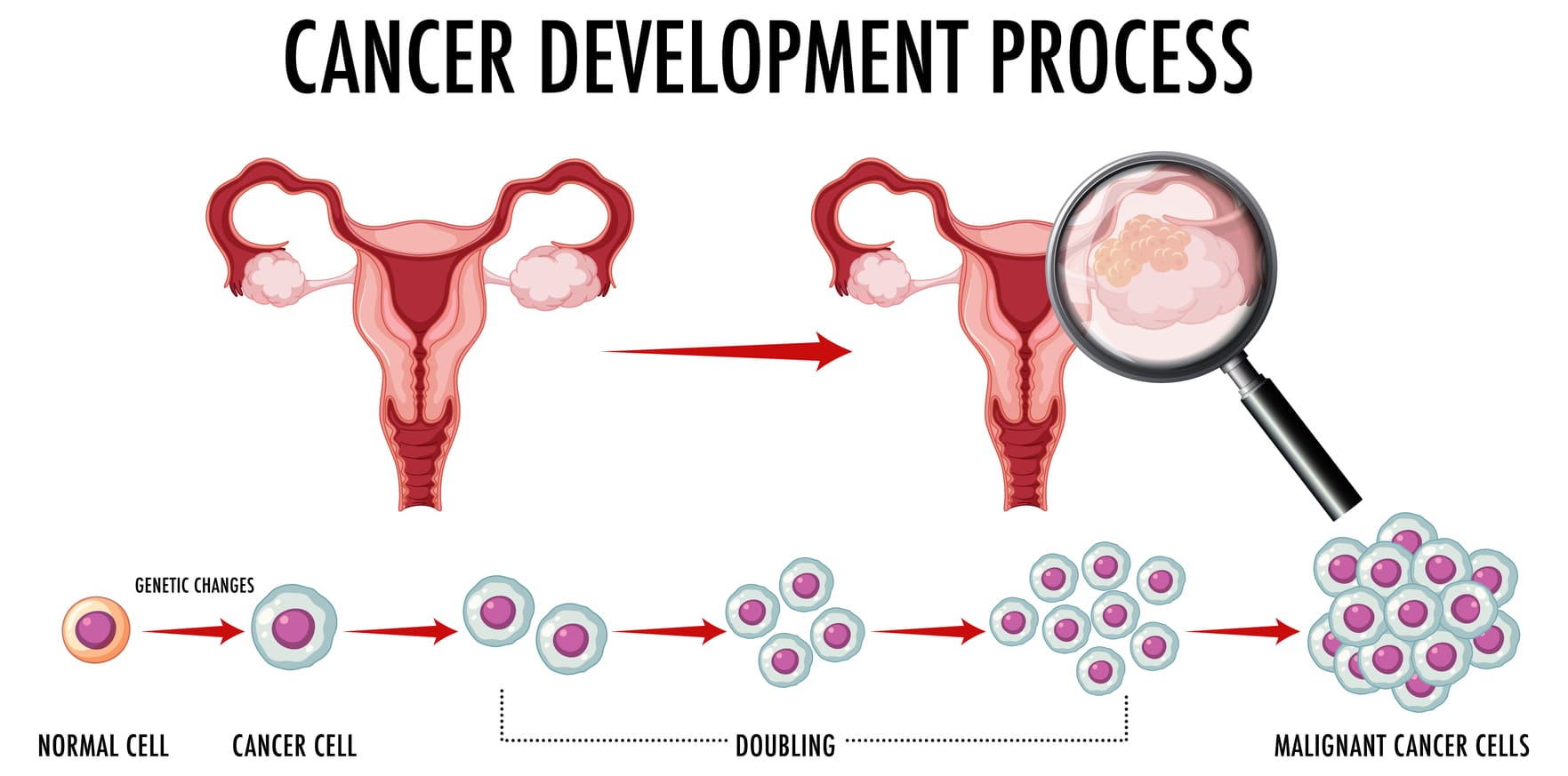Uterine fibroids are non-cancerous cells that form in the uterus. They’re ubiquitous, affecting millions of women worldwide. While they can cause discomfort and disrupt daily life, it’s important to remember that they are not cancerous.
Understanding the Myth
There are widespread myths regarding the fact that uterine fibroids turn out to be cancers. Fibroids and cancerous tumors are distinct. Fibroids arise from smooth muscle cells, while cancerous tumors originate from epithelial cells.
Common Symptoms
While many women with uterine fibroids experience no symptoms, others may encounter symptoms like heavy menstrual bleeding, which further leads to fatigue and anemia, pelvic pain and pressure, which may feel like a constant ache or sharp pain, and frequent urination.
This is because fibroids can press on the bladder, leading to increased frequency. The larger fibroids might press nerves, causing even lower back pain. Sometimes, the developed fibroids cause blocks to fallopian tubes or the uterine cavity, hindering fertilization and implantation.
Treatment Options
Treatment options for uterine fibroids vary depending on the severity of symptoms, age, and future fertility plans. Some common approaches include watchful waiting; your doctor may recommend monitoring the fibroids without immediate treatment for mild symptoms. Medications like hormonal therapy can help shrink fibroids and reduce symptoms. Minimally invasive procedures like uterine fibroid embolization (UFE) and myomectomy can target and remove fibroids. Surgery, such as a hysterectomy, might be necessary in such severe cases.
Tips for Managing Symptoms
While uterine fibroids can be a nuisance, they don’t define you. To manage your condition and improve your overall well-being, consider these tips:
- Prioritize stress management through relaxation techniques like yoga or meditation.
- Eat a balanced diet with plenty of fruits, vegetables, and whole grains.
- Exercise daily to improve your health and energy levels.
- Drink plenty of water to stay hydrated.
A healthy lifestyle to cure uterine fibroids
While no specific diet can cure uterine fibroids, a healthy lifestyle can help manage symptoms and improve overall well-being. To do so:
- Reduce red meat intake as it may increase the risk of fibroid growth.
- Limit alcohol consumption, as excessive intake can worsen hormonal imbalances.
- Manage stress by engaging yourself in stress-reducing techniques.
Maintaining a healthy weight, such as being overweight or obese, can increase the risk of fibroid growth. Consider herbal remedies like black cohosh and chasteberry for symptom relief, but always consult your healthcare provider before using herbal supplements.
The Emotional Impact of Uterine Fibroids
Emotionally, it may be tough to live with uterine fibroids. These feelings should be considered and somehow addressed. Share your feelings with a friend, family member, or therapist. Join a support group by connecting with others who understand and can provide support. Prioritize activities that give you joy and relaxation, and If you’re struggling with anxiety or depression, consider seeking therapy or counseling.
Uterine fibroids are one of the most common gynecological conditions. However, unlike other health issues, it doesn’t necessarily stop you from enjoying life if properly understood, managed, and supported. You can effectively manage your symptoms and lead a healthy lifestyle by seeking medical advice, making lifestyle changes, and practicing self-care.




